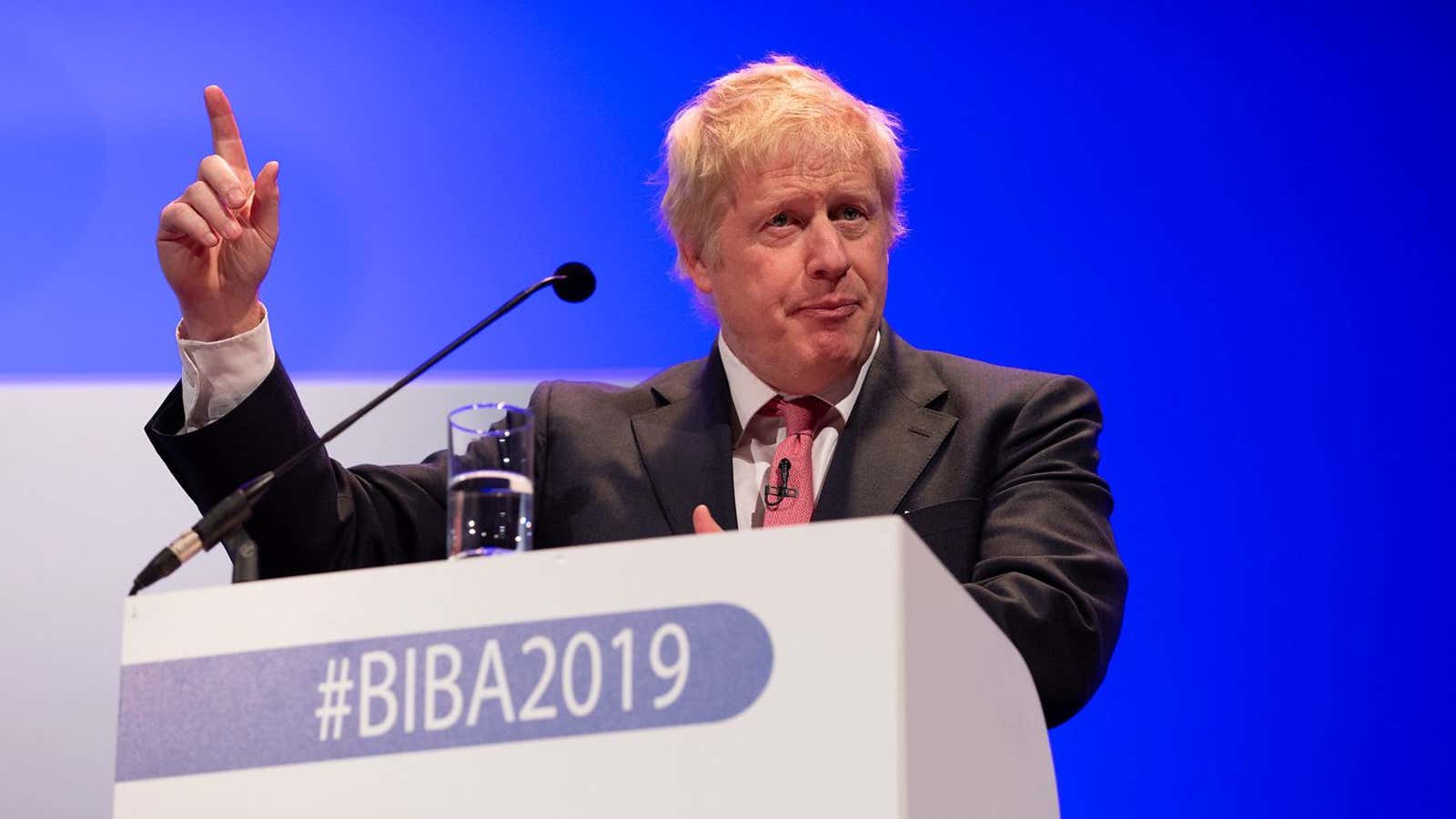In this week’s general election in the UK, Boris Johnson’s Conservative party won a tremendous majority, paving the way for him to pass his Brexit deal. Short of something very, very unexpected happening, the UK will officially leave the EU at the end of January 2020.
But while Brexit is often described in binary terms—you’re in, or you’re out—it isn’t quite that simple. The UK may officially leave certain institutions, but it will practically enter a “grey area,” or post-Brexit implementation period. This is designed to ease the transition and give both the EU and the UK extra time to hash out a trade deal. Other details yet to be figured out include how the Dover-Calais crossing will function and the implementation of a hard border in the Irish Sea, such as setting up inspection posts for sanitary checks on food or livestock going into Northern Ireland.
It’s not clear how long these negotiations will take. Johnson has vowed to have a trade deal in place in a year or less, but senior EU figures such as Brexit negotiator Michel Barnier have deemed these aspirations unlikely. “It is unrealistic that a global negotiation can be done in 11 months, so we can’t do it all. We will do all we can to get what I call the ‘vital minimum’ to establish a relationship with the UK if that is the time scale,” he said. Johnson intends to end the transitional period and adopt WTO terms if a trade deal is not in place by the end of 2020.
The EU is taking these threats seriously, Barnier said. “We can’t take contingency measures on trade to give us more time…If there’s no deal, it is a cliff edge for trade.” This would result in tariffs on goods brought in and out of the UK, with a separate system needed for those going from Great Britain to Northern Ireland.
The only way such negotiations could be quick is if the UK decides to keep its regulations and tariffs in line with the bloc—“based on a balance of rights and obligations [to] ensure a level playing field,” as the EU puts it. For the first few months of his time as prime minister, Johnson was shackled to the Northern Irish DUP and the far right of the Conservative party, both of which would have opposed such compromises. With a clear majority, he now has much more flexibility—potentially allowing for a softer Brexit. However, this could make it harder for the UK to set up much-hyped trade deals with other countries, such as the US.
In a perfect world, both the UK and the EU would like a free trade deal to be set up as quickly as possible. But the only way that can happen is if one party is prepared to make significant compromises. So far, it’s not clear whether either will budge.
